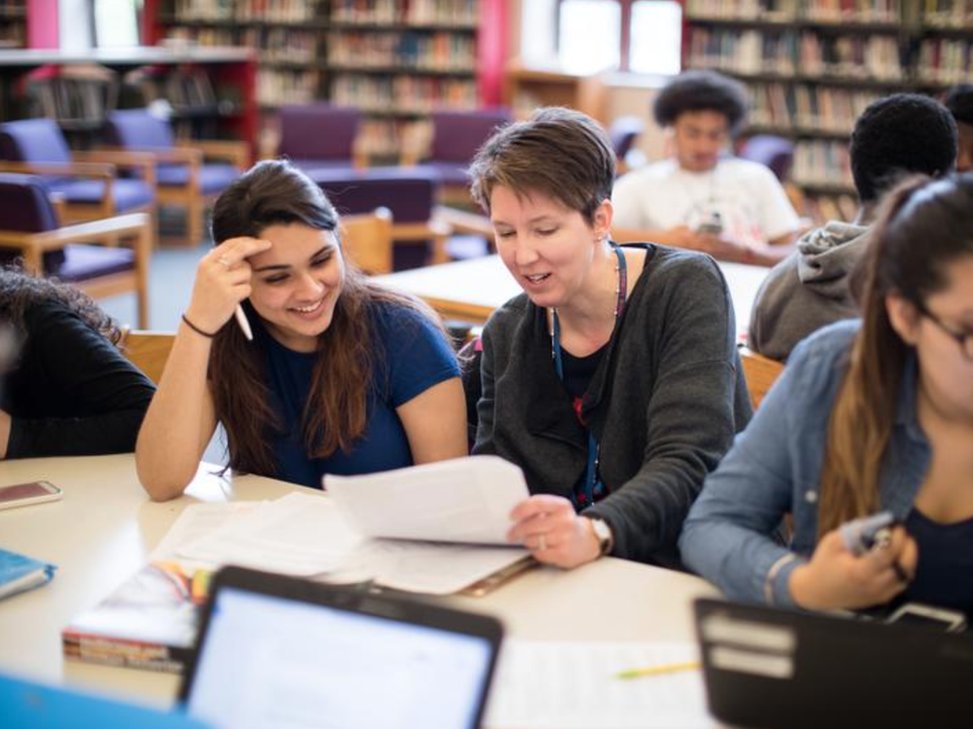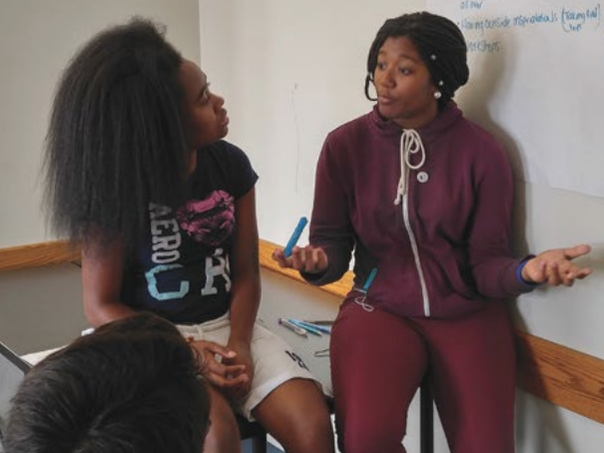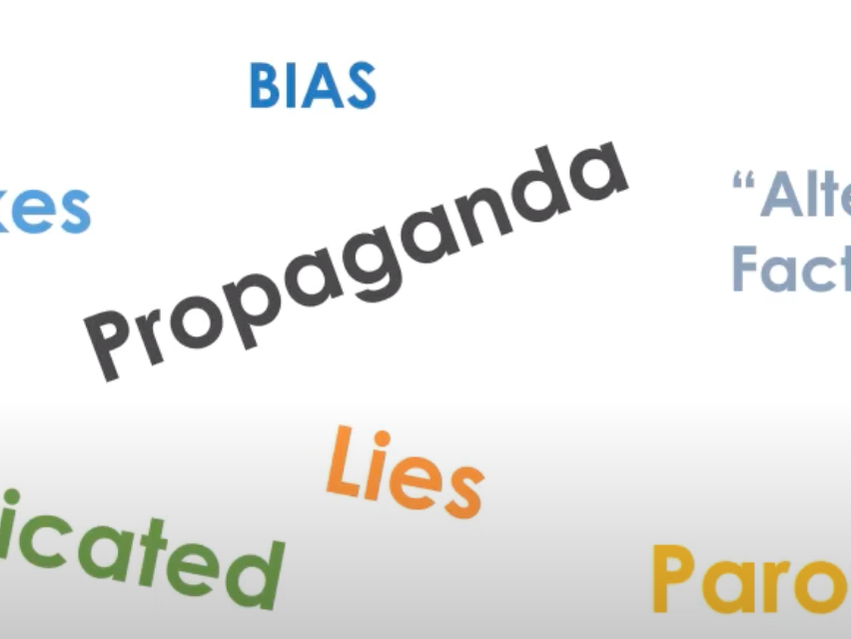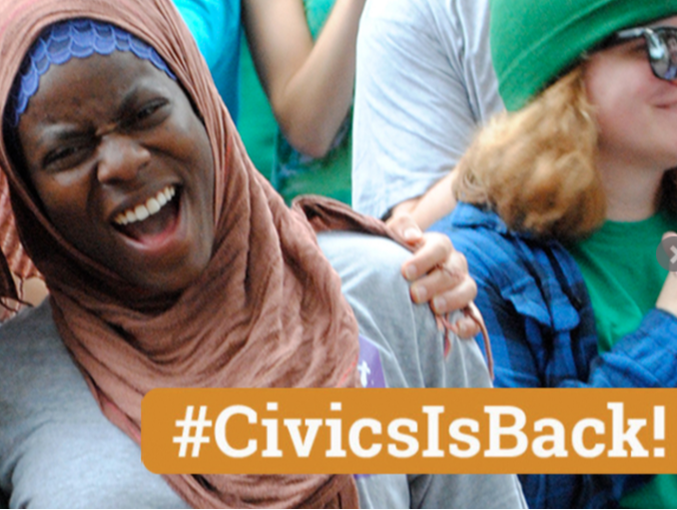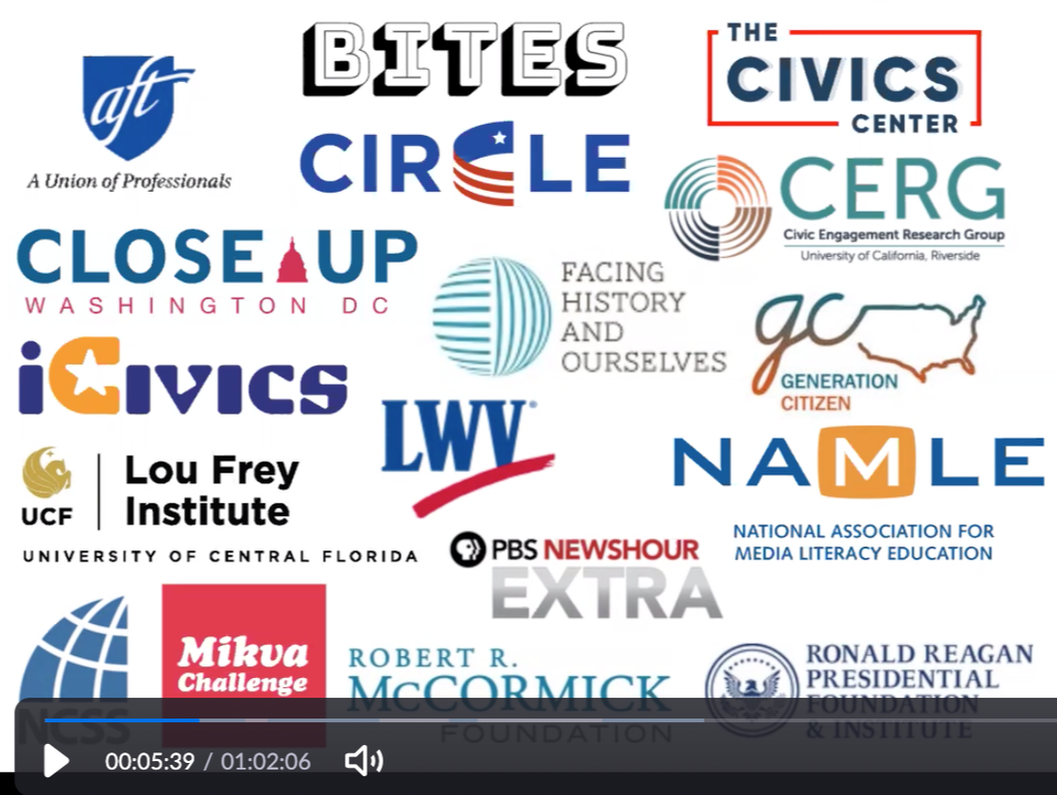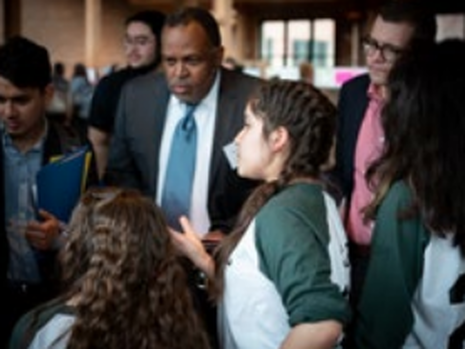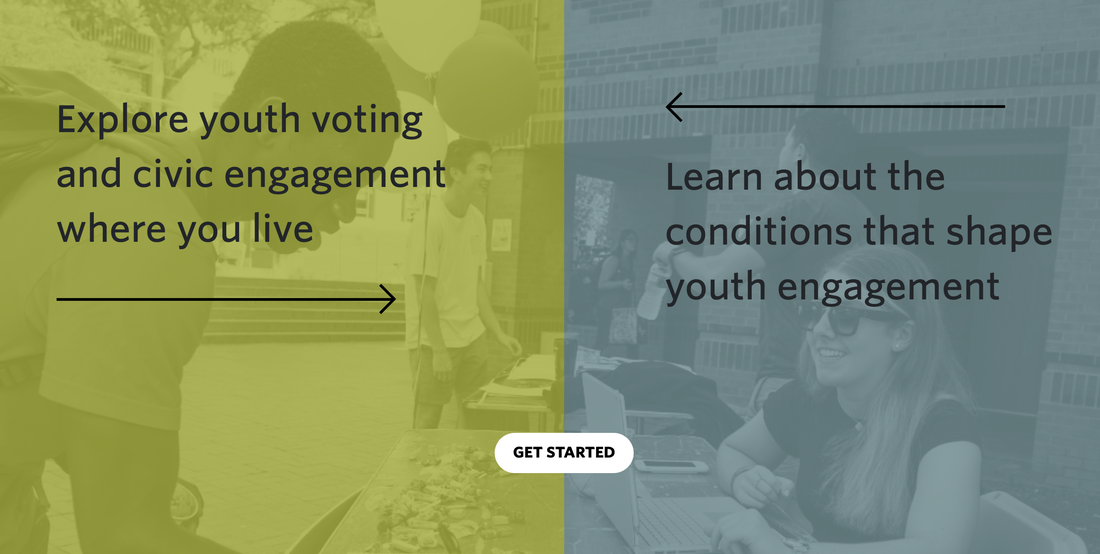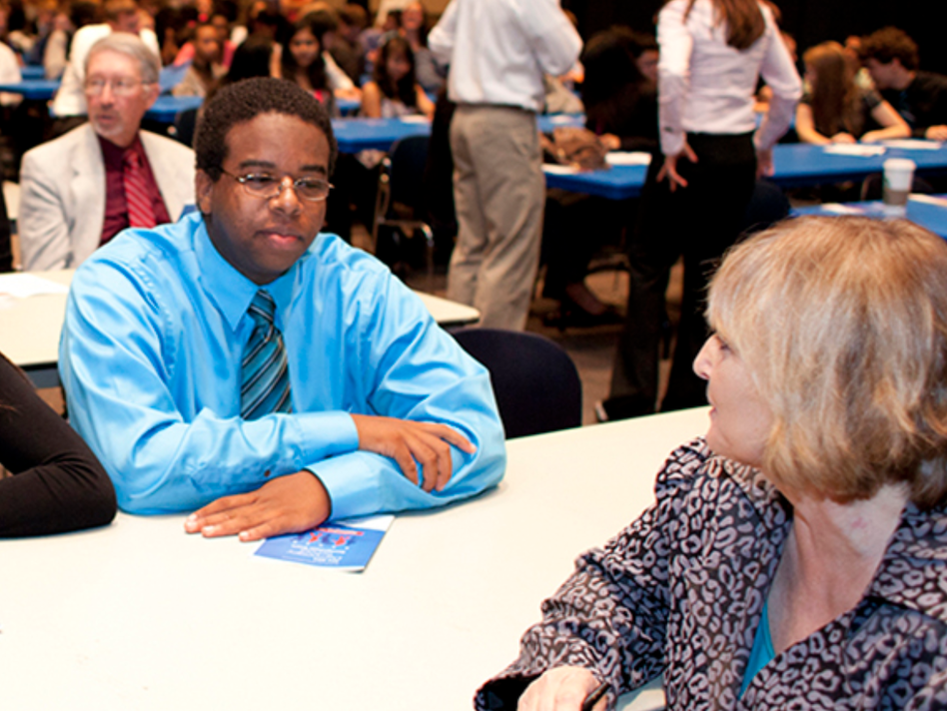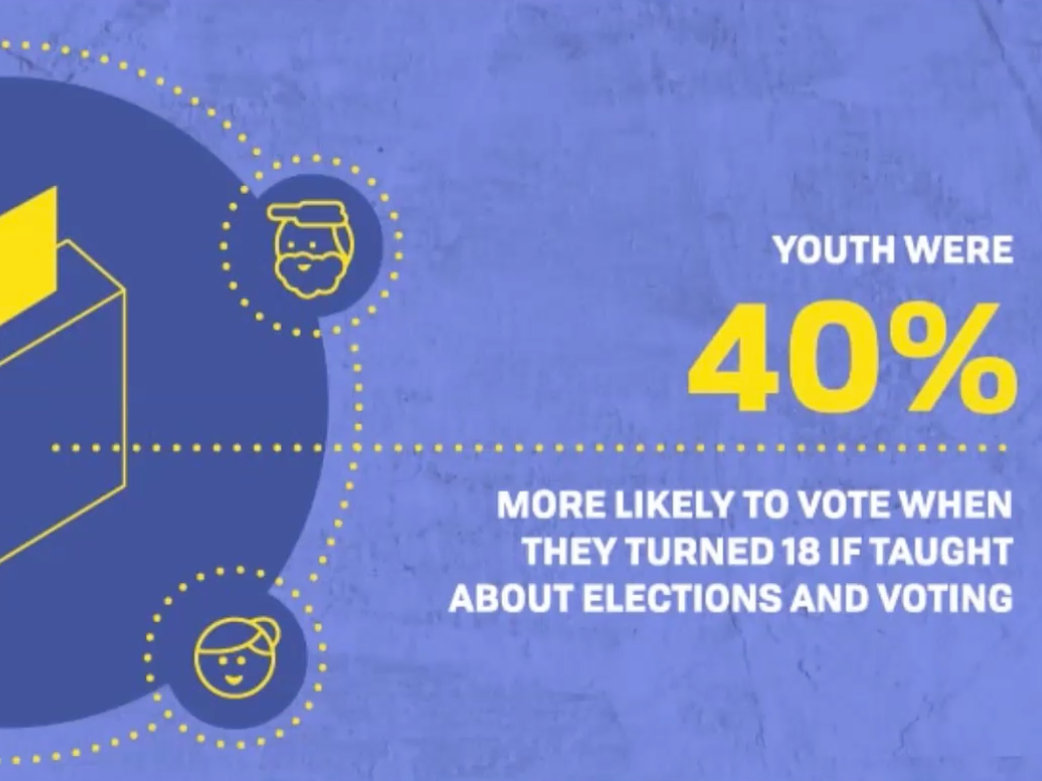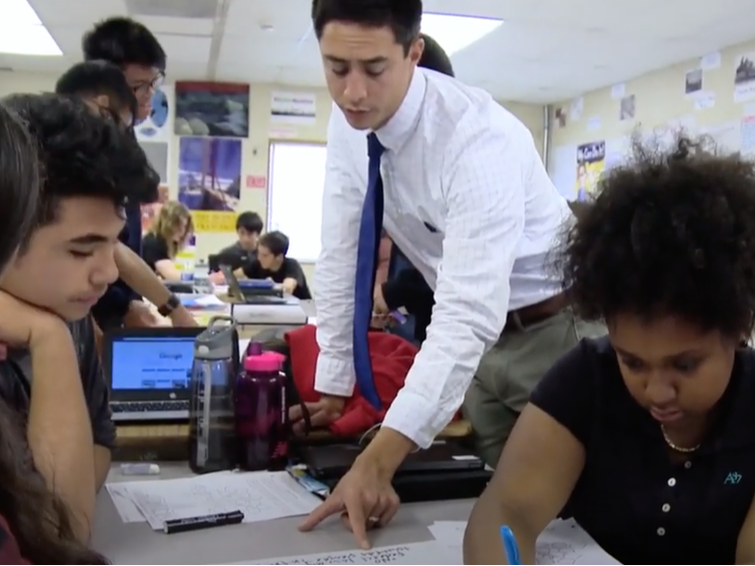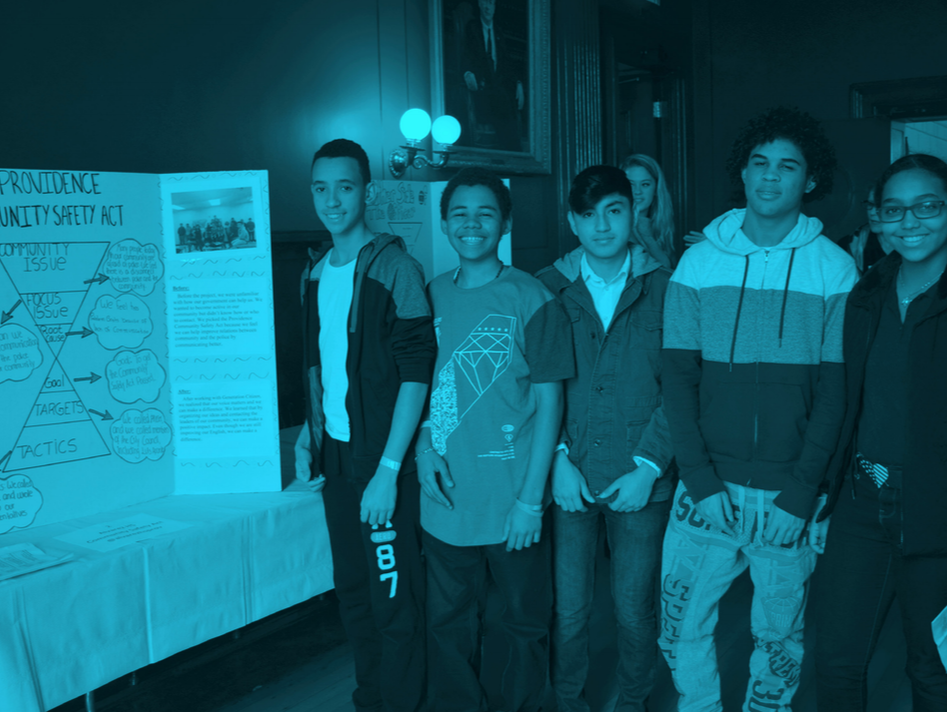Teacher Training, Support, and Resources
RATIONALE & RESEARCH
Teaching about elections and voting is uniquely challenging. Information is constantly changing; conversations about political issues can be contentious, especially as partisanship rises across the country; and real differences exist within communities in access to and perspectives on civic participation. School and district administrators play a vital role in ensuring the teachers have the resources, training, and ongoing support they need to engage students in exploring the history, structures, tensions, and opportunities of democracy.
Research tells us:
Research tells us:
- “Although high school Civics and Government teachers’ primary charge is to prepare students for informed civic participation, [CIRCLE’s] survey data show that 25 percent feared that they would face pushback from their stakeholders, especially parents.” ("Teaching Controversial Issues in a Time of Polarization”, 2018)
- “Teachers who perceive more support from their district were more likely to promote student voice and to have more positive feelings about classroom deliberations... both perceived support from principals and parents directly impacted teachers’ values about student voice. The more support educators perceived, the more comfortable they were with students’ right to express their opinions and to disagree with them.” ("Teaching Controversial Issues in a Time of Polarization”, 2018)
- “Unequivocal and explicit support from principals to frame school as an active site of rigorous discourse about wide-ranging social and political issues has enormous, yet often overlooked, potential to advance civic learning. Principals can embody a school climate that not only welcomes discussions of controversial issues, but that also allows students to feel comfortable exploring their opinions and views on political issues without indoctrinating them into a specific set of beliefs.” ("Teaching Controversial Issues in a Time of Polarization”, 2018)
LESSON PLANS & RESOURCES
Professional Development Resources
Teaching with Current EventsThese On-Demand Learning webinars brought to you by the Hammer Family Foundation through Facing History and Ourselves cover a wide range of topics including social studies, history, civics, ELA, equity and inclusion, and classroom culture. Many of these webinars qualify for professional development credit.
Teacher PD |
PD for Action Civics and Youth VoiceMikva Challenge provides a wide range of professional development workshops that can be brought to your school, organization or district and customized based on your specific needs - including a new portfolio of virtual professional development opportunities. Popular workshops include: Action Civics as a Tool for Equity, Building Democratic Classrooms, Taking Action: Community Problem Solving, Facilitating Courageous Conversations, and more. All workshops will address student engagement in an in person setting as well as remotely.
Teacher PD |
How to Spot Fake NewsThis webinar - facilitated by PBS NewsHour Extra, the AFT's Share My Lesson, Listenwise, and the Stanford History Education Group - prepares teachers to spot fake news and train students to be educated news consumers.
Teacher PD |
When Discourse Breaks DownDownload the materials from this professional development webinar about strategies for navigating common challenges during class discussions and debates, facilitated by Close Up and shared on the AFT's Share My Lesson platform.
Teacher PD |
Civics Professional Development Opportunities
The Illinois Civics Hub offers this calendar of upcoming PD opportunities for teachers to build proficiency in a wide range of competencies related to civics instruction, including core content, current events facilitation, culturally responsive teaching to promote anti-racist classrooms, and more.
|
Helping Students Navigate the 2020 Elections, and BeyondThis webinar (password: D&3k#D0u), co-facilitated by members of TFDA and current middle and high school teachers, is intended to help K-12 educators consider the ways that they can engage students in inquiry and preparation to participate in the 2020 presidential election this November and civic life in the future—without starting from scratch or going it alone.
Teacher PD |
Whose Vote CountsHow have the pandemic and allegations of voter fraud raised barriers to voting that may disenfranchise many Americans? Watch a special panel discussion about the FRONTLINE PBS film Whose Vote Counts, which explores an issue critical to the 2020 election: access to voting. Dr. Jelani Cobb, staff writer for The New Yorker and Columbia Journalism School Professor, joins June Cross, documentary filmmaker and Columbia Journalism School Professor, and Frontline producer Tom Jennings, for this discussion on one of the most contentious presidential elections in recent memory.
Professional Learning |
The Struggle for Racial Justice and Voting with Dr. Carol Anderson
Free and fair elections are the foundation of all democracies. The US Voting Rights Act of 1965 established protections for all Americans, especially for Black Americans. However the 2013 Supreme Court decision Shelby County v Holder dismantled key elements of the Voting Rights Act and voter suppression efforts are ongoing across the country. Dr. Carol Anderson; professor, historian, and National Book Critics Circle Award winner, explores the history of the fight for African Americans' voting rights as part of the struggle for racial justice in the United States.
Professional Learning |
Action Civics Programs and CurriculaMikva Challenge partners with teachers to develop student skills essential to problem-solving and civic action, and their Action Civics curricula provides hands-on experiential lessons in: community problem solving (Issues to Action), youth leadership (Student Voice Committees), critical analyses of, and participation in, our electoral systems (Elections in Action), and thoughtful evaluation and creation of media (News, Voice, Power). Beyond civics curriculum, Mikva helps educators create democratic classrooms and schools.
|
Youth Voting and Civic Engagement in AmericaCIRCLE launched a new data tool, Youth Voting and Civic Engagement in America, which offers a unique way to explore the relationships between voting and other forms of civic participation, and some of the (political, socioeconomic, and community) conditions that shape such engagement. Educators can explore the tool as well as this teaching resource which offers lesson ideas for social studies, math, art, journalism, or ELA teachers interested in having students investigate the resource on their own.
|
Educating 4 Democracy
|
For School or District Administrators
Guidelines for AdministratorsThis resource, from the Illinois Civics Hub, is designed to help school administrators consider how four proven pedagogies in civics instruction align with best practices in Social Emotional Learning, the Common Core State Standards, and 21st Century Skills. It includes indicators of practice as well as explicit descriptions of standards/framework alignment for each pedagogy.
|
Including Elections and Voting in Your Back-to-School PlansIn this webinar, (password: 3zUS^z$q), co-facilitated by members of TFDA and several current K-12 teachers and administrators, school and district leaders will consider data to help support them in prioritizing teaching about elections and voting this fall, hear from others about their experiences with implementation, and review recommendations and TFDA resources for facilitating civic learning in their institutions in the months ahead.
|
STORIES
Action Civics in School DistrictsThis report, from Generation Citizen, aggregates interviews from 14 individuals working at the district or county level in urban areas across the country to offer best practices for implementing Action Civics education throughout an entire district, as well as pain points and challenges that district leaders face in achieving scale and saturation.
|
